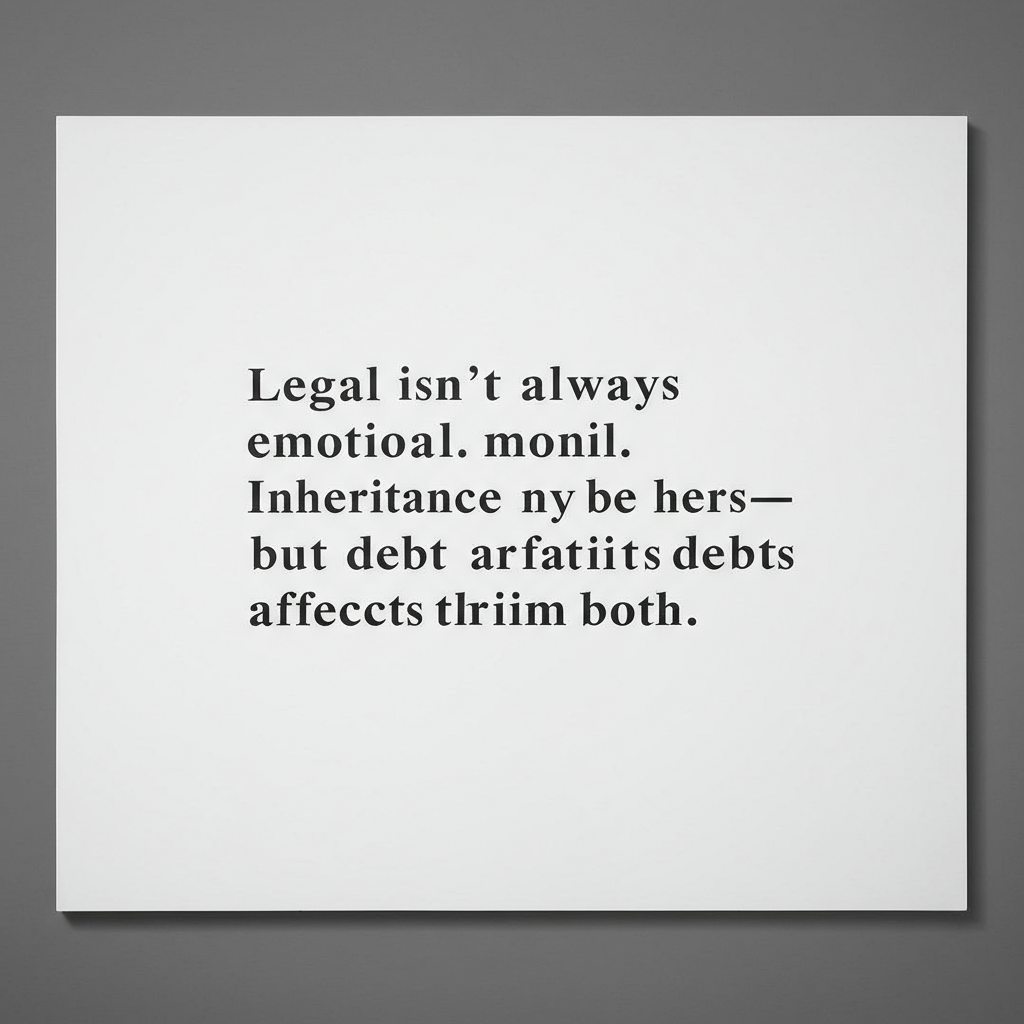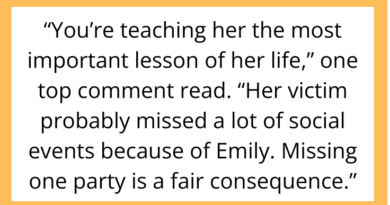AITAH for Not Letting My Husband Use My Inheritance to Pay Off His Debt?
When it comes to marriage, sharing is often expected—but what happens when that includes money that wasn’t earned together? In this emotionally charged AITAH scenario, a woman finds herself torn between protecting her late father’s legacy and helping her husband out of financial trouble.
Is she heartless for saying no, or simply setting healthy boundaries?
The Background: A Loss, a Legacy, and a Line Crossed

A 34-year-old woman—let’s call her Sara—recently lost her father. It was a devastating blow, made slightly easier by the fact that her father had left her a sizeable inheritance. With the money, Sara planned to pay off her student loans, start a savings fund for her future children, and invest in a small business idea she and her father had always dreamed of.
Enter her husband, Mark.
Mark, 36, had accumulated a significant amount of debt over the years—some from student loans, but mostly from credit card spending and a failed investment in a friend’s startup. When he learned about the inheritance, he assumed it would be used to clear their “shared” debts.
Sara had other plans.
Drawing the Line: Her Money, Her Choice?

Sara explained to Mark that the inheritance was from her father’s estate and was meant to honor his memory. While she didn’t mind contributing to their household expenses, she didn’t want to use that money to bail out poor financial decisions made long before they got married.
Mark didn’t take it well.
He accused Sara of being selfish, of putting money before marriage, and even said she was dishonoring the spirit of partnership. His stance was clear: they were a team, and this money should be used for their mutual benefit.
Sara, hurt and conflicted, turned to Reddit with the burning question: AITAH for refusing to use my inheritance to pay off my husband’s debt?
The Internet Reacts: “That’s Not Shared Money”

Reddit’s AITAH community came down heavily on Sara’s side.
“You are NTA. Inheritance is not marital property unless you choose to make it so,” one top comment read. “Your husband is trying to guilt you into giving up something deeply personal.”
Another commenter added, “The fact that he expected it—rather than asked respectfully—speaks volumes.”
Still, a smaller group raised valid counterpoints.
“If you’re married, and your spouse is drowning in debt, that affects you too,” one person wrote. “Maybe not legally, but definitely emotionally and financially. Are you really in this together or not?”
Marriage and Money: What’s Fair to Expect?

Legally vs. Emotionally
In most jurisdictions, an inheritance left to one spouse remains that person’s separate property—unless it’s deposited into joint accounts or used for joint expenses. So technically, Sara was within her rights to refuse.
But marriage isn’t just about what’s legal—it’s also about shared goals, mutual respect, and compromise. If Sara and Mark don’t see eye to eye on finances, that could indicate a deeper incompatibility.
Debt Isn’t Just Numbers
Mark’s debt might not be Sara’s problem on paper, but it is a factor in their future. Whether it’s qualifying for a mortgage, planning for kids, or simply budgeting for day-to-day life, one partner’s financial baggage inevitably impacts the other.
That said, the nature of the debt matters. Student loans? Understandable. Reckless credit card debt and failed ventures? That’s a red flag.
The Bigger Issue: Trust, Expectations, and Entitlement

This AITAH scenario highlights a bigger conversation about financial entitlement in relationships.
-
Sara viewed the inheritance as sacred—a symbol of her father’s legacy.
-
Mark viewed it as shared marital wealth—a resource to solve their problems.
Neither is entirely wrong, but the disconnect reveals something deeper: a clash of values.
Sara may see Mark’s reaction as a breach of trust—especially if he’s showing entitlement instead of gratitude. Meanwhile, Mark may feel judged or unsupported, which could stem from insecurity about his past financial mistakes.
What Should They Do?

For Sara:
-
Have a transparent conversation about financial goals.
-
Consider offering some support—but on her terms, not as a bailout.
-
Set boundaries and possibly consult a financial advisor.
For Mark:
-
Accept that inheritance is not owed to him.
-
Reflect on why the debt happened and show accountability.
-
Understand that partnership doesn’t mean entitlement.
Final Verdict: Not the Villain—But Not Without Consequences

So, AITAH for refusing to share inheritance money with a spouse?
No. You’re not the villain for protecting something deeply personal—especially when it represents more than just money. But this isn’t just about finances. It’s about communication, values, and whether both people are truly on the same team.
Marriage isn’t 50/50 all the time, but it does require mutual respect. If one person feels used, and the other feels abandoned, it’s not just a financial problem—it’s an emotional one.



